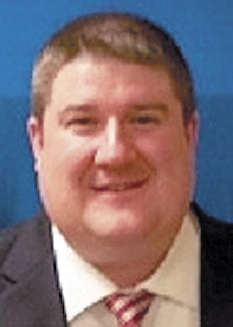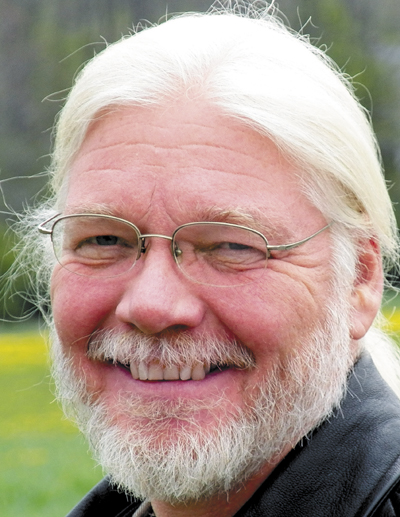Both candidates for House District 45 believe the biggest challenge facing Maine is its lagging economy and job market, but they disagree on how to fix it.
Republican Rep. Ryan Harmon and Democratic challenger Brian Jones are both campaigning to represent Burnham, Freedom, Knox, Montville, Palermo, Thorndike, Troy and Unity in the State House.
Harmon, a 38-year-old one-term incumbent from Palermo, said lowering taxes will create a favorable environment for businesses in Maine. Jones, 55, of Freedom, believes the state house needs to refocus its energy on agriculture, forestry and other natural resources to foster prosperity.
Harmon said he is proud of his accomplishments in Augusta during the past two years — particularly the state budget that received wide bipartisan support and lowered taxes on small businesses; and the de-regulation of health insurance that allows Mainers to purchase policies across state lines.
Jobs are created by the market, not politicians, Harmon said. To spur job growth, Harmon would like to lower taxes further so employers can use their savings to hire more employees or invest in research and development. As a member of the taxation committee in Augusta, Harmon heard a number of small business owners testify that high taxes are the most difficult aspect of running a business in Maine.
“We had one of the highest tax burdens in the nation at 8.5 percent. We lowered it to 7.95 percent, but it’s still one of the highest,” he said. “How are they (small business owners) going to be able to hire more people with less cash on hand?”
Harmon describes himself as a Republican with libertarian and constitutionalist leanings, and he shares some core values with the tea party; however, party labels are beside the point, he said.
“I don’t really classify myself as either conservative, liberal or libertarian. I look at myself more as representing the people,” he said.
Bipartisanship comes easier at the state capital than in the nation’s capital, Harmon said. It happens because the Legislature is required to pass balanced budgets, and the shared goal fosters greater cooperation between parties, he said.
Harmon’s opponent considers tax cuts at the state level a shift of the tax burden to municipalities and property owners. Jones, a selectman in Freedom, said the cuts predominately favor the wealthy and ignore more vulnerable populations.
“We’ve got a lot of seniors on fixed incomes, and they’re watching their taxes go up,” Jones said. “Meanwhile, the circuit-breaker program — property tax relief for low-income people — is being cut.”
Jones added that it’s irresponsible for the state to cut taxes when it isn’t fulfilling its obligation to school districts.
“We’ve seen our state subsidy for education decrease by $435,000,” Jones said of his local Unity-based Regional School Unit 3. “I unequivocally support the state funding local schools at 55 percent, like the citizens told them to do in 2003 in a referendum vote. To deny the people’s voice is just undemocratic, and it shows a lack of leadership in the Legislature and the governor.”
Jones considers himself a common sense Democrat.
“I’m looking for solutions to problems. I’m not looking to promote an ideology. I want prosperity for my community, and I want everyone to be taxed fairly and I want to see our money spent wisely,” he said.
Jones is running because he feels his district, which is predominately rural, is under-represented in Augusta.
“I think there’s a lot of legislation coming out of Augusta that doesn’t promote our area. We’ve got a unique economy, and I don’t think we’ve been well served,” he said.
Jones believes that the Legislature’s attempts to woo industry like call centers through tax incentives is short-sighted. Instead, Jones believes reinvestment in agriculture and other natural resources can promote a “resilient, robust and sustainable local economy.”
Ben McCanna — 861-9239
bmccanna@centralmaine.com
Send questions/comments to the editors.




